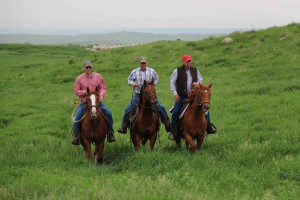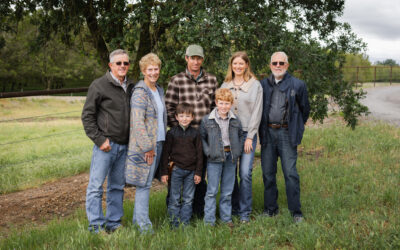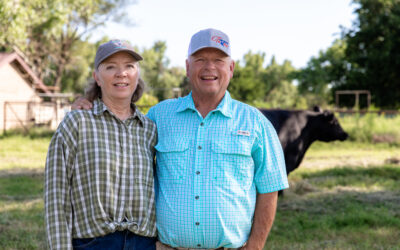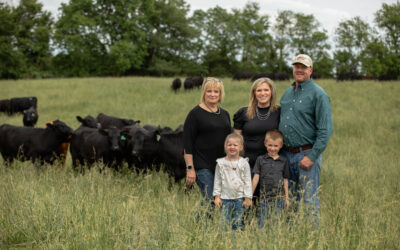
True grit with a grin
I’ve never tossed the word around lightly. Like there are only so many available slots and I have 10 for a lifetime.
This summer I met Richard Tokach on his Angus ranch near St. Anthony, N.D. I shook his hand and I knew he had it.
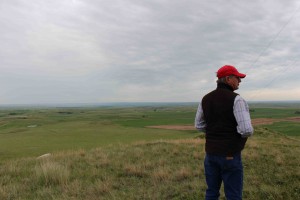
You can see it in Richard, too. A cowman proud of what he’s accomplished and humbled by the lessons learned along the way.
“There’s certainly a lot more good times in the cattle business than the other side,” Richard says with a grin. “Otherwise there wouldn’t be any cattle ranchers.”
Richard and his brother Brad were born into the Angus world when their great-grandfather homesteaded the place in 1898. Nine years between them, the oldest and youngest of the Tokach boys partner in the seedstock operation their father, Dick, set in motion.
Marketing to customers young and old, the Tokaches boast in their cows’ ability to support a calf with little assistance. There’s no creep feeding at the ranch. Look out over the herd and you’ll notice a familiar toughness shared by their keeper.
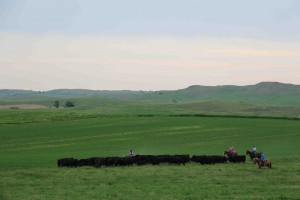
He’ll credit that to the genetics of the breed.
“Our job as seedstock producers is to multiply the better genetics, the superior genetics and pass them on to our customers and consumers.”
Adding on to their father’s foundation, the men took a herd of 225 in 1979 to 750 by the time Richard’s son Ben decided he, too, would accept the responsibility of generational cowman.
“I always say if you’re not growing or expanding, you’re going backward,” Richard says, “Every year we try to make our cattle better.”
That’s music to my CAB ears – an entire symphony when you hear longtime brand partner Terry Beller, Beller Feedlot, Lindsay, Neb., share that a recent closeout of Tokach culls achieved 85% CAB or CAB brand Prime.
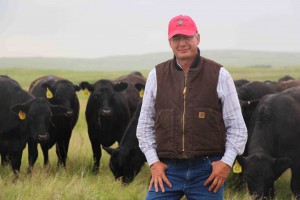
Through storm or celebration, it seems that’s the attitude that will endure another century in the business.
Thanks for allowing me to tell your story,
Laura
You may also like
Legacy in the Golden Land
On a quiet stretch of Northern California rangeland, a different story unfolds. The Borror family’s legacy modestly speaks through the cattle they raise, the ground they steward. The generations who’ve made a life here demonstrate commitment to doing things right, even when no one is watching.
Helping Hands, Helping Herds
“When I die, I want to come back as one of your cows,” murmurs a friend to Steve Zybach. Full to the brim from an alfalfa ration every day, bountiful fields of lovegrass stretched out across the Texas Panhandle—and owners who leave no ounce of cattle care up for question. The Zybachs’ motivation for this level of dedication to their Angus cattle is simply love.
An Ambassador for All
Joanie, with daughter Lindsey and her husband, Adam Hall, raise registered Angus cattle with two primary goals: producing high-quality seedstock that perform well in a wide variety of environments and ensuring end-user satisfaction. Those goals tie everything together, from promoting Angus to other producers to sharing their story with CAB partners and beef consumers.

